
Is your gluten-free diet working? In this article, I share eight telltale signs that indicate your gluten-free diet is working to resolve your celiac disease symptoms. Please discuss symptoms and changes to your diet with your doctor. See my disclosures.
This week, I’m celebrating my 11-year celiac disease diagnosis anniversary. It seems like forever ago and at the same time, yesterday, when my doctor called me to tell me I have celiac disease.
Celiac disease is a genetic autoimmune disease that affects 1 in 100 people worldwide.
Every time a person with celiac eats gluten, a protein found in wheat, rye, barley, and sometimes oats, their immune system mistakenly attacks the healthy tissue surrounding the small intestine.
The small intestine is responsible for absorbing nutrients from your food and distributing those nutrients to every cell and organ in the body.
When the small intestine malfunctions, people with celiac disease experience various symptoms, including gastrointestinal disorders, nutrient deficiencies, chronic fatigue, bone density issues, itchy and blistery skin, thyroid disease, and more.
Unfortunately, the only treatment for celiac disease is a strict gluten-free diet free from all sources of gluten, including foods that come in contact with gluten, known as gluten cross-contamination.
People with celiac disease need to be extremely careful about what they eat, what medications they take, and what body care products they use, even paying close attention to lip balms, toothpaste, makeup, and sunscreen.
Once someone with celiac disease removes gluten from their diet, the small intestine begins to heal, although healing can take months, if not years. One study found that it takes approximately 3.8 years for celiac patients to experience full mucosal (intestinal lining) recovery.
Sadly, research suggests that some people with celiac disease never achieve complete mucosal healing and live with persistent symptoms.
Others experience a phenomenon known as refractory celiac disease, where they experience continued symptoms and intestinal damage despite strict adherence to a gluten-free diet. Refractory celiac disease Is associated with poor prognosis and high mortality.
While it’s possible that a celiac patient won’t respond to the gluten-free diet, it’s unlikely. The vast majority of patients go on to live symptom-free, healthy lives while following a strict gluten-free diet.

8 Telltale Signs Your Gluten-Free Diet Is Working
If you’re curious if your gluten-free diet is working, see if you experience any or all of these eight telltale signs.
Sign #1: Reduced Digestive Issues
Most patients with undiagnosed celiac disease complain to their doctor about persistent gastrointestinal symptoms such as bloating, gas, diarrhea, constipation, etc.
These chronic gut issues can be painful and annoying and deter someone from feeling well. Such symptoms also prompt doctors to test their patients for celiac disease.
I was one of those GI sufferers. Before my celiac diagnosis, I experienced chronic and painful bloating and constant embarrassing gas, which worsened as the day progressed.
Once I discovered I had celiac disease and eliminated gluten from my diet, I felt like a new woman.
Of course, this progression took time. I only felt marginally better at first, and it took months, if not years, to fully feel myself again, likely because I was learning how to be gluten-free and still making mistakes (i.e., consuming small amounts of gluten).
If your celiac-related digestive issues don’t resolve after 6-12 months, chances are you’re still consuming small amounts of gluten and may not be as careful as you think.
Mastering the skills needed to be gluten-free — such as setting up your gluten-free kitchen, navigating grocery stores, ridding your medicine cabinet of gluten, cooking nourishing and safe meals at home, and eating out at restaurants — takes time.
Editor’s Note: If you’re not fully compliant with the gluten-free diet, consider enlisting the help of a celiac nutrition professional. Also, a good place to learn the ins and outs of a gluten-free lifestyle is enrolling in this gluten-free course as a first course of action.
You may also have other related digestive issues, such as IBS, acid reflux, candida, SIBO, leaky gut, H.Pylori, a food allergy or intolerance, or an infection or parasite that needs to be addressed.
Talk with your doctor if your GI symptoms persist or worsen, as there might be other issues – beyond celiac disease – at play.
Also, I learned the hard way that it takes way more than swapping donuts for gluten-free donuts to heal my body. I had to learn how to eat in a way that nourished my body.
I had to take supplements to replenish my depleted nutrient tank. I had to soothe my body with nutrient-dense green juices.
Also, I had to employ various healing strategies that I detail in my book, Dear Gluten, It’s Not You, It’s Me, and briefly discuss in my article, How I Healed from Celiac Disease Naturally, to heal and restore my body to its factory settings.
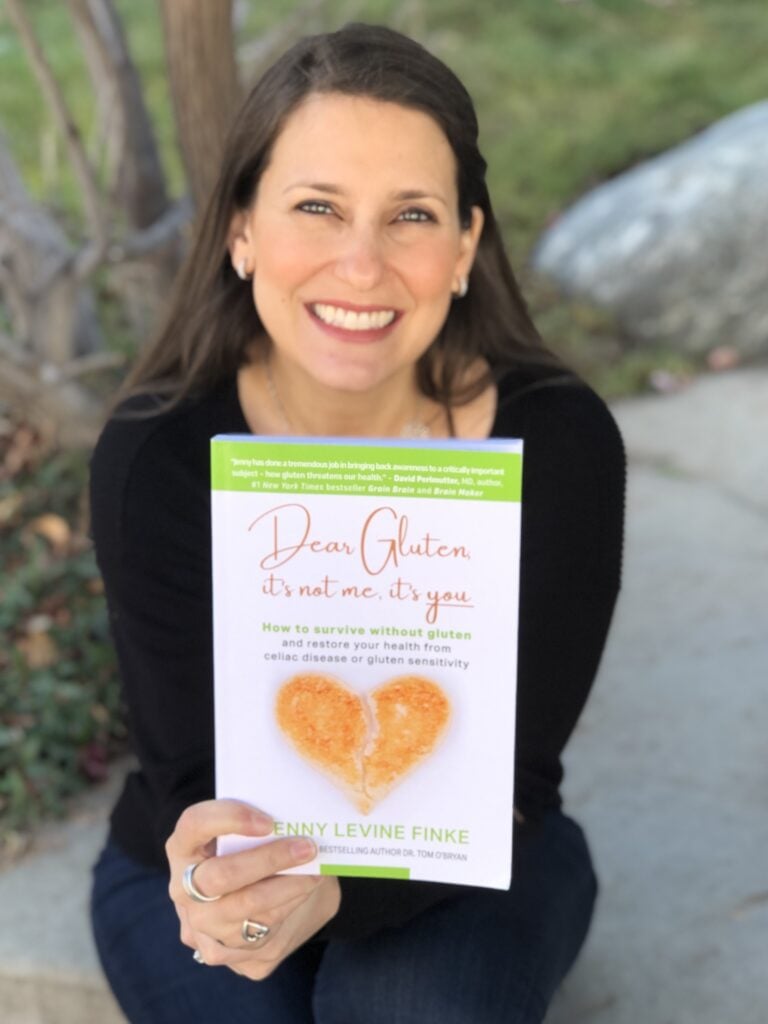
Sign #2: Your Body Stops Making Gluten Antibodies
My friend and colleague, Dr. Tom O’Bryan, always says to “test, not guess” regarding your health. While you may feel better without gluten, taking a peak under the hood is always good.
I order an at-home Celiac Monitoring Test when my celiac diagnosis anniversary rolls around. This lets me see how my body is responding to the gluten-free diet.
A celiac monitoring blood test looks at how your body responds to various celiac biomarkers (tTG IgA, tTg IgG, DPG IgA, and DPG IgG).
I took an at-home Celiac Screening Test in March and received the results in April 2023. All my biomarkers are in the “normal” range. (The following screenshot shows my results.)
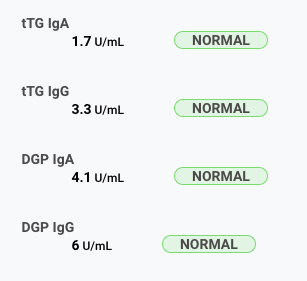
Seeing “normal” results assures me that my body has responded to a gluten-free diet and self-healing practices. Yay me!
Please note that imaware discontinued all celiac screening and monitoring tests in June 2023. I highly recommend using Everlywell’s Celiac Screening test to screen and monitor your biomarkers.
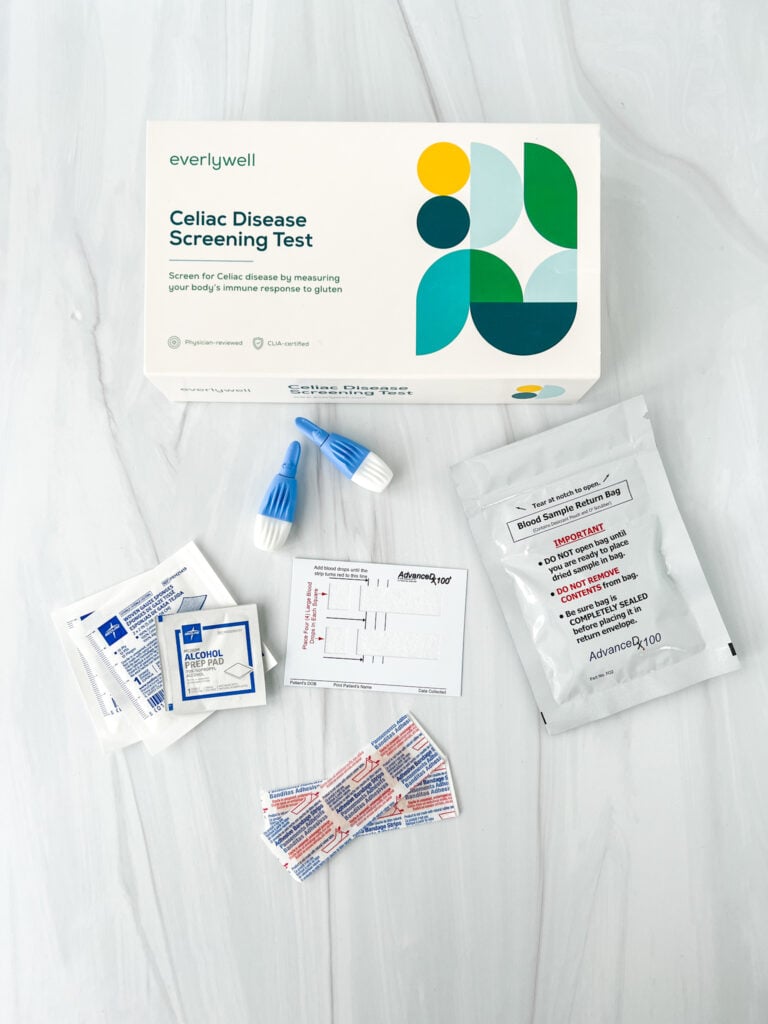
Sign #3: Improved Skin Health
Dermatitis Herpetiformis (DH), also known as celiac rash or celiac of the skin, is a skin manifestation of celiac disease. People with DH experience chronic, itchy blisters on their skin that won’t go away with conventional medications.
Upon implementing a gluten-free diet, most people with DH find their painful flare-ups lesson and resolve, a clear sign that a gluten-free diet is working.
Celiac patients without DH may also see improvements in their skin.
Some people find their acne lessons or clear up altogether. They may also find they have healthier and more vibrant skin, likely because their body is properly absorbing essential nutrients.
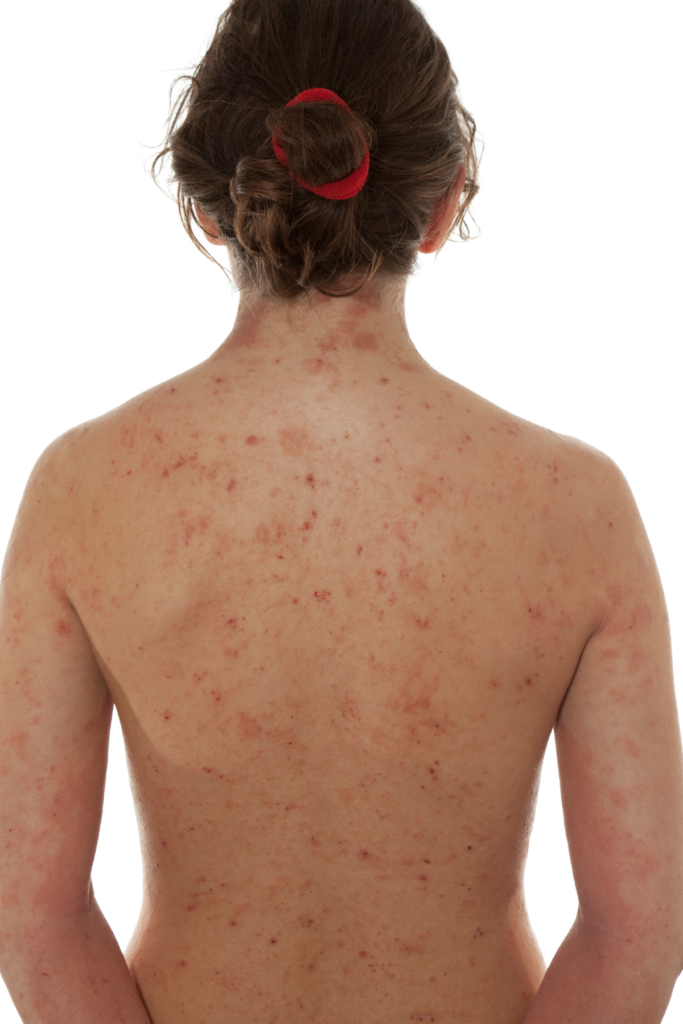
Sign #4: Other Symptoms Resolve
While gastrointestinal and skin conditions are the most common signs of celiac, dozens of other symptoms indicate celiac disease. A person who doesn’t experience classic GI symptoms is known to have silent celiac.
Non-GI symptoms related to celiac disease include fertility issues, bone density loss, thyroid issues, joint pain, migraines, failure to thrive (in children), and persistent nutrient deficiencies such as anemia.
The good news is that all or most of these symptoms dissipate and resolve when a patient implements a strict gluten-free diet.
Sign #5: More Energy
Because celiac disease leads to widespread nutritional deficiencies, people have more energy when their symptoms resolve.
Without proper nourishment, people with celiac disease are low in Vitamin D, Vitamin B, and other essential nutrients that support energy levels.
If you have low energy, it’s a sign that your body is either not getting proper nourishment or that celiac disease is still preventing your small intestine from properly absorbing nutrients from your food.
You can monitor your vitamin levels to ensure your body is properly absorbing nutrients. I recommend this Vitamin D and Inflammation test and this Vitamin B screening test.
Sign #6: Weight Stabilization
Many people with undiagnosed celiac disease experience weight issues, which may resolve with a gluten-free diet.
Some people are underweight or have trouble gaining weight. This is because most food makes them feel sick, so they either don’t eat or, when they do eat, they experience persistent diarrhea.
Others are overweight because they overeat to compensate for nutritional deficiencies.
Regardless of whether a person is underweight or overweight, their weight should stabilize once they implement a strict gluten-free diet.
However, a person with celiac disease must get help from a nutrition professional to learn how to eat gluten-free and adjust how and how much they eat.
For example, a person used to overeating to compensate for nutritional deficiencies must learn to eat nutrient-dense, fiber-rich foods that help them feel full and nourish their body.
An underweight person will need to learn how to eat a balanced diet complete with fruits and vegetables, lean proteins, and gluten-free whole grains, foods which they may have thought made them feel sick in the past.
Remember, a gluten-free diet isn’t a weight loss diet per se; it’s a medically necessary diet for people with celiac disease and non-celiac gluten sensitivity.
While many people lose weight after implementing a gluten-free diet, just as many gain weight once they start eating processed gluten-free foods loaded with sugar and fats. Remember, sugar is naturally gluten-free, but that doesn’t make it a good-for-you food.
Please read my article, 5 Dangers Associated with the Gluten-Free Diet, to learn more about following a gluten-free diet safely.
Sign #7: Better Sleep
Experts say sleep disorders can stem from unresolved gut issues, such as a leaky gut and gut inflammation. Celiac disease is a gut disorder as well.
Many may not realize that a hormone called melatonin is produced in the brain and the gut. This is why good gut health is essential for a good night’s sleep.
Remember, melatonin keeps your body in sync with the circadian rhythms of the world (i.e., your 24-hour internal clock). A healed gut will ensure your body produces the melatonin you need to sleep well. And good sleep is a sign that your dietary changes might just be working.

Sign #8: Improved Brain Function
Many people experience cognitive issues due to an undiagnosed gluten disorder, a topic explored in two fantastic books, Grain Brain (Dr. David Perlmutter) and You Can Fix Your Brain (Dr. Tom O’Bryan).
Both books discuss how gluten and carbohydrates can lead to a leaky gut and how a leaky gut can lead to brain inflammation.
Once someone goes gluten-free, they may find symptoms of various brain disorders, such as dementia, ADHD, depression, brain fog, and anxiety, lessen or subside altogether.
Is Your Gluten-Free Diet Working?
If you have celiac disease, you probably want to know if a gluten-free diet is working and if you’ve successfully put your celiac disease into remission.
While you may have more energy, stabilize your weight, and resolve many of your painful and annoying symptoms, a simple blood test is the best way to know if a gluten-free diet is working.
I encourage you to order an at-home Celiac Disease Screening test from Everlywell so you can know how your body responds to a gluten-free diet. As always, be sure to discuss the results with your doctor.
If your body is not healing as hoped, consider enrolling in my SIGNATURE Gluten-Free course to ensure you’re doing gluten-free right and learn some basic healing strategies. I also offer 1-to-1 celiac nutrition coaching for more advanced patients who may still be struggling to heal their bodies.
Related Articles
You might enjoy these articles:
- Can Celiac Disease Cause Weight Gain?
- How to Monitor the Effectiveness of the Gluten-Free Diet in Celiac Disease?
- What to Expect When Getting Tested for Celiac Disease (Blood Test and Endoscopy)
- 5 Dangers Associated with the Gluten-Free Diet
- 10 Tips to Getting Started on a Gluten-Free Diet
- Can You Be Too Gluten-Free? How to Balance Dietary Vigilance Without Losing Your Mind
- 200+ Foods You Can Eat on the Gluten-Free Diet
Check out the Gluten-Free Made Easy Course I developed with Dr. Tom O’Bryan!
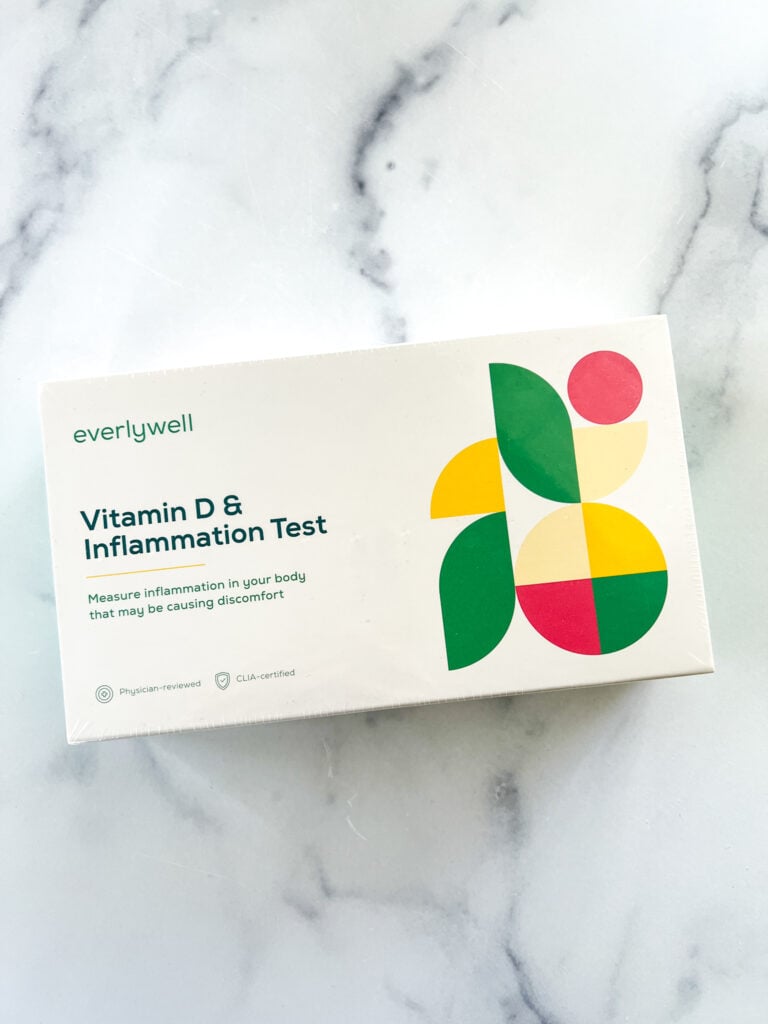
Great article!! I’m still not ok with testing. But all of my changes made thru close observation thru my team of professionals is finally working and this two nightmare seems to be stabilizing. Thank you for all the info and testing of food you do. It’s so valuable!!!